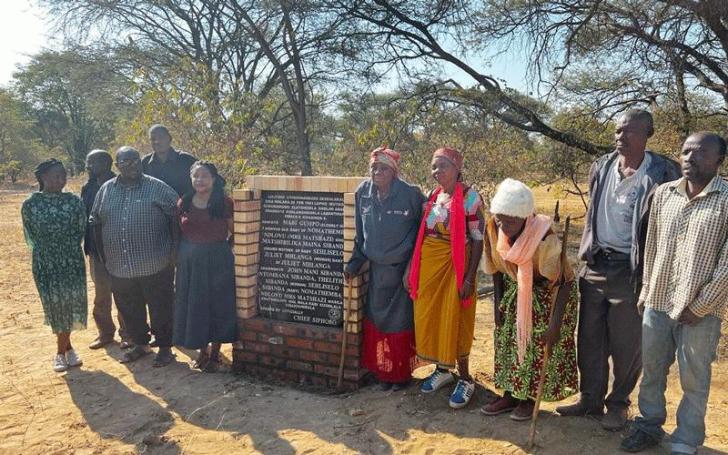News / National
'Chiefs not fit to lead Zimbabwe genocide consultations'
02 Jul 2024 at 06:14hrs |
0 Views

TRADITIONAL leaders tasked by President Emmerson Mnangagwa to lead Gukurahundi consultations are ill qualified to deal with the emotive matter, an academic Samukele Hadebe has said.
Hadebe made the remarks on Friday in Bulawayo while presenting a memorial lecture on the late former Zipra commander Alfred Nikita Mangena.
The memorial lecture was organised by Bulawayo-based pressure group Ibhetshu LikaZulu.
Nikita Mangena died on June 28, 1978 when a land mine blew up a vehicle he was travelling in.
Hadebe said the consultations should be led by Zipra soldiers instead of traditional leaders.
"For the chiefs to be involved as a stakeholder is a good idea, but not for them to lead the process. Zipra was the first target of the killings and must be the first to be considered for community peace building," Hadebe said.
"This was a highly military issue. How can civilians like us address a complex highly militarised issue that involved the military command? Gukurahundi was a full military operation. Chiefs have no capacity to deal with a fully military operation."
He added that there was a need for the government to be fully involved in resolving the Gukurahundi issue.
"If you want to solve a serious crisis of this magnitude, you need government involvement. We need courts, we need police, we need money and all this involves government institutions," Hadebe said.
"Someone may say the current government must not be involved because it is the aggressor, but the truth is that the government needs to be fully involved through institutions. For us to have transformation there must be institutional reforms to change the way organs of the State operate so that when we speak we are not arrested, when we put up plaques they do not steal them. Only the government has the power to level the ground on Gukurahundi."
Hadebe, who is also the leader of the opposition Freedom Alliance party, said truth telling was a major component that needed to be considered during the consultations.
Former Zapu spokesperson Iphithule Maphosa said it was sad that while efforts were being made to resolve the Gukurahundi issue with regards to the killings and other atrocities that happened in the 1980s, a soft Gukurahundi was continuing, where many people in Matabeleland were being marginalised in employment and resources distribution.
Hadebe made the remarks on Friday in Bulawayo while presenting a memorial lecture on the late former Zipra commander Alfred Nikita Mangena.
The memorial lecture was organised by Bulawayo-based pressure group Ibhetshu LikaZulu.
Nikita Mangena died on June 28, 1978 when a land mine blew up a vehicle he was travelling in.
Hadebe said the consultations should be led by Zipra soldiers instead of traditional leaders.
"For the chiefs to be involved as a stakeholder is a good idea, but not for them to lead the process. Zipra was the first target of the killings and must be the first to be considered for community peace building," Hadebe said.
He added that there was a need for the government to be fully involved in resolving the Gukurahundi issue.
"If you want to solve a serious crisis of this magnitude, you need government involvement. We need courts, we need police, we need money and all this involves government institutions," Hadebe said.
"Someone may say the current government must not be involved because it is the aggressor, but the truth is that the government needs to be fully involved through institutions. For us to have transformation there must be institutional reforms to change the way organs of the State operate so that when we speak we are not arrested, when we put up plaques they do not steal them. Only the government has the power to level the ground on Gukurahundi."
Hadebe, who is also the leader of the opposition Freedom Alliance party, said truth telling was a major component that needed to be considered during the consultations.
Former Zapu spokesperson Iphithule Maphosa said it was sad that while efforts were being made to resolve the Gukurahundi issue with regards to the killings and other atrocities that happened in the 1980s, a soft Gukurahundi was continuing, where many people in Matabeleland were being marginalised in employment and resources distribution.
Source - southern eye
Join the discussion
Loading comments…



























